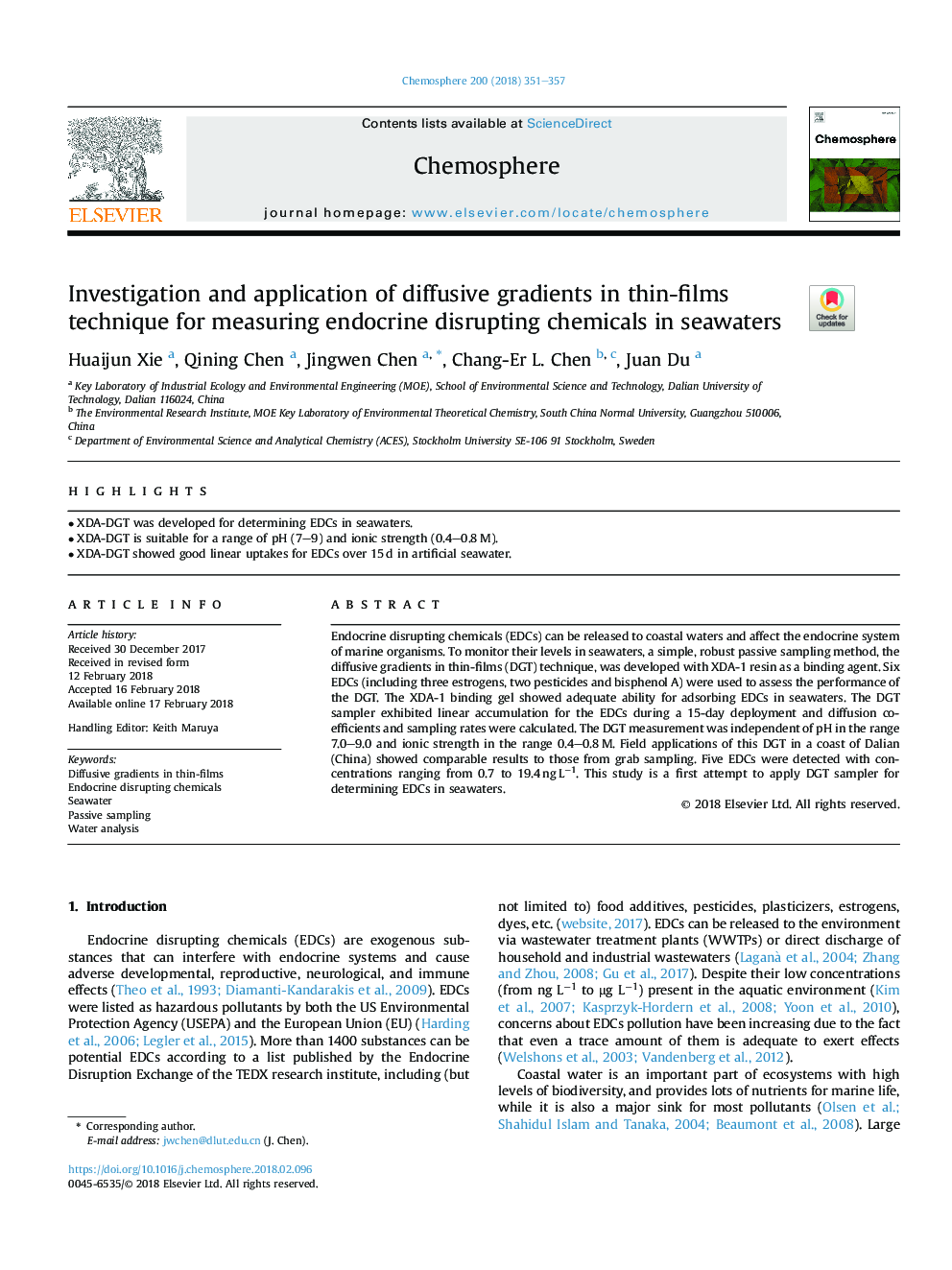| Article ID | Journal | Published Year | Pages | File Type |
|---|---|---|---|---|
| 8851682 | Chemosphere | 2018 | 7 Pages |
Abstract
Endocrine disrupting chemicals (EDCs) can be released to coastal waters and affect the endocrine system of marine organisms. To monitor their levels in seawaters, a simple, robust passive sampling method, the diffusive gradients in thin-films (DGT) technique, was developed with XDA-1 resin as a binding agent. Six EDCs (including three estrogens, two pesticides and bisphenol A) were used to assess the performance of the DGT. The XDA-1 binding gel showed adequate ability for adsorbing EDCs in seawaters. The DGT sampler exhibited linear accumulation for the EDCs during a 15-day deployment and diffusion coefficients and sampling rates were calculated. The DGT measurement was independent of pH in the range 7.0-9.0 and ionic strength in the range 0.4-0.8â¯M. Field applications of this DGT in a coast of Dalian (China) showed comparable results to those from grab sampling. Five EDCs were detected with concentrations ranging from 0.7 to 19.4â¯ngâ¯Lâ1. This study is a first attempt to apply DGT sampler for determining EDCs in seawaters.
Keywords
Related Topics
Life Sciences
Environmental Science
Environmental Chemistry
Authors
Huaijun Xie, Qining Chen, Jingwen Chen, Chang-Er L. Chen, Juan Du,
